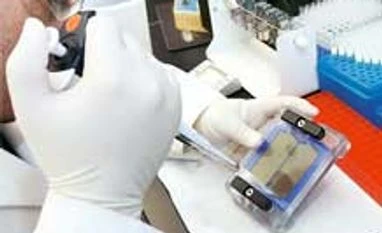Among the companies likely to sign deals with Gilead are Cadila, Hetero, Strides Arcolab and Mylan, while Cipla is expected to earn active pharmaceutical ingredient (API) rights.
According to sources, Gilead has applied for a patent on these drugs in many countries, including India. The deal is seen as its strategic move to leverage the drugs' potential, as well as save its patent protection, which is under attack in many countries. For the domestic drug makers, these deals are expected to bring significant revenues.
More From This Section
| WIN-WIN DEALS? |
|
The companies are expected to sign the final licensing agreement here on Monday afternoon. Business Standard could not independently verify the details of this agreement. An e-mail questionnaire sent to Gilead did not elicit any immediate response.
The company's public relations agency said: "The public affairs team at Gilead is in transit at the moment and, therefore, will not be able to respond to the queries."
While the generic penetration will allow prices to come down significantly in those 90 markets, including India, irrespective of the drugs' patent status, Gilead is likely to retain its monopoly in all other geographies.
Moreover, Gilead is also expected to benefit from the proposed deals because its patent has already been challenged in many countries, including in India. Earlier this year, civil society organisations like the Delhi Network of Positive People and Initiative for Medicine and Access to Knowledge filed pre-grant oppositions challenging the validity of a patent application for sofosbuvir. The organisations questioned the novelty, inventive step and efficacy of the product.
According to a source, some generic companies like Natco, and the Indian Pharmaceutical Alliance, which represents 18 major generic producers, also challenged the patent. A patent office decision against Gilead might have allowed the firms to sell the generic version without entering into any pact with the innovator firm.
)